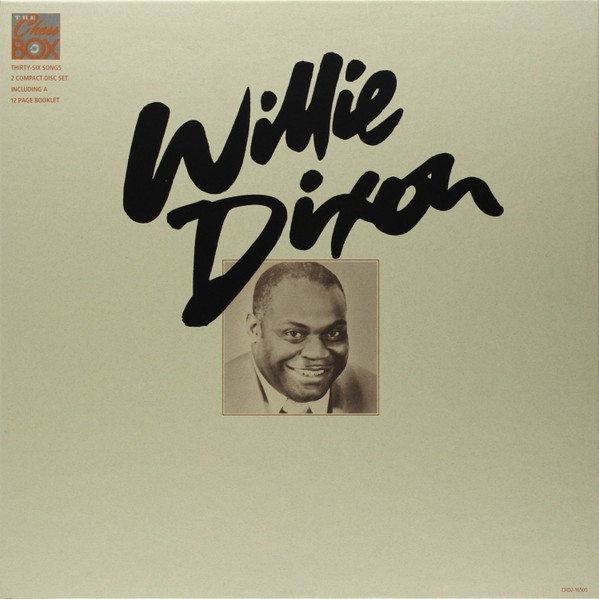Overview:
“David Baerwald is a talented and extremely unprolific artist who has maintained some loose ties to the fringes of American progressive music.” CC “His songs are littered with people who either never had a chance or pissed it all away. The streets are dark and dangerous, you can’t trust the cops, the wealthy are corrupt, and the government doesn’t give a fuck about you – yet somehow, impossibly, always, there is a beautiful glimmer of humanity. Sometimes even the hope for redemption. And his voice is the perfect vehicle: ragged; slippery of pitch; alternating between world-weary sigh and anguished howl. It’s postmodern Los Angeles as the Wild Wild West, and in many ways, he’s never altered that viewpoint.” JB
“Baerwald is the type of guy best described as wiry. Slight of build, he has a firm handshake and piercing green eyes. Peppered with brown flecks, they're notably expressive as the gateway to a man who has lived a full existence…Whatever life has dealt Baerwald, he perseveres, and in the process, he's made music the world needs to hear.” AC
Early Years:
Baerwald was born in Ohio in 1960. He had two older sisters. In the mid-‘60s, his family moved to Los Angeles. They were even in Japan for awhile because of his father’s work as a political science instructor. Before he was 10, he had picked up one of his sister’s guitars. They settled in Los Angeles in the ‘70s though. AC As he jokes, “Just in time for me to join the Less Than Zero crowd.’” AC
Of his early days in bands, he said “We were just a bunch of twerpy nerds and rich kids…I was playing bass in those days with a band called the Spastics. It was more of a youth gang than a real band. I think a lot of punk bands were that way; there were a lot of people who were in bands, but were really car thieves or drug dealers.’” AC
He drifted through a series of odd jobs after high school. One had him doing story analysis for Orion Pictures. As he said, “You’d take a book or screenplay and distill it to three paragraphs…and do it in the style of what you were writing about.” AC It helped Baerwald develop a taste for songwriting. AC
After some problems with the law, he changed his lifestyle and moved back in with his parents, who were divorcing. Baerwald was itching to make music and called Dave Ricketts, a friend of a friend, who was interested in scoring film. AC
David + David (1986):
He and Ricketts recorded an album in 1986. Baerwald considered the process therapeutic. He says, “I was wrestling with paranoia and depression, and he was essentially agoraphobic. One day I was looking at 15 years in prison and he was a set painter at a movie studio… I was in a lot of trouble with a lot of different things and I was engaged in this ‘young guy catharsis’ thing.” AC
Baerwald says “I wasn’t really making it for anyone…It was a couple of screw-ups in someone’s bedroom with a portastudio, that’s all it was…I wasn’t thinking about record companies or the music business. Somehow our tape ended up on the desk of Jordan Harris, the A&R guy at A&M Records. The next thing I knew, we were on MTV 20 times a day…being asked our opinion on world events. Both of us were freaked…It was very disorienting.’” AC
“The duo found itself one of the most buzzworthy new artists of the year,” JB thanks in large part to the top-40 success of the album’s lead single “Welcome to the Boomtown.” “With its glossy surfaces and memorable melodies, Boomtown was deceptively smooth. Beneath the slick production, the songs were tales of despair and broken dreams in the era of Ronald Reagan.” AC
Baerwald Goes Solo (1990-1992):
The pair never recorded a follow-up. Ricketts turned to behind-the-scenes work for artists like Toni Childs, JB who had sung backing vocals on Boomtown. Baerwald launched a solo career with Bedtime Stories in 1990. Like Boomtown, “it was an album of deceptively laid-back pop; the calm production and subtle, memorable melodies hid the fact that Baerwald's characters were either inflicting or suffering from emotional pain. It was a triumph, winning raves from critics, but it sold very few copies.” STE
On his second album, 1992’s Triage, “Baerwald decided to have the music match the message, creating soundscapes that recalled a subdued, more pop-friendly Tom Waits. Again, the critical praise was substantial but the record sold even fewer copies than the first. A follow-up wouldn’t be seen for nearly a decade” STE as Baerwald “would discover an increasing lack of support – even hostility – from label bosses (not to mention an indifferent record-buying public).” JB
Tuesday Night Music Club (1992-93):
Baerwald was also contributing to albums by Joni Mitchell, Robbie Robertson, Rickie Lee Jones, Susanna Hoffs, and Sophie B. Hawkins, among others. Of most note, however, was his work with Sheryl Crow. In the fall of 1992, he began working with Crow and others in a loose collective of musicians who gathered at Bill Bottrell’s studio on Tuesdays.
11 of the songs (of which Baerwald is featured as a guitarist and/or co-writer on 11) ended up comprising Crow’s 1993 debut album Tueday Night Music Club. “All I Wanna Do,” which Baerwald co-wrote, won a Grammy for Record of the Year.
Members of the collective would also contribute to Baerwald’s own Triage, Susanna Hoff’s 1996 eponymous album, Linda Perry’s In Flight (1996), and the 1995 debut solo album (Thud) of fellow Tuesday Night Music Clubber Kevin Gilbert.
“Baerwald’s politics, increasingly dark personality, and refusal to play record-company stooge all contributed to a rift between himself and the guy running the show at A&M at the time.” JB They “held onto Baerwald’s contract only so it could prohibit him from releasing anything while simultaneously engaging in a whisper blackball campaign against him.” JB
Baerwald says, “I had the worst breakup with [the record company] of any I have ever heard of. I personally insulted a bunch of the people that worked there. They wanted me to be Sheryl Crow’s slave and I didn’t want to do that…I rejected having a solo career…The whole thing seemed like a bunch of shit. Narcissism, egomania, vanity. I don’t consider those attractive qualities, and I don’t know how they became the gold standard in today’s culture. To have that world as the only arrow in my quiver seemed like a suicidal way of working.” AC
Baerwald also had to contend with several deaths. His friend John O’Brien committed suicide. He wrote the novel Leaving Las Vegas, which inspired the song of the same name on Crow’s Tuesday Night Music Club album. Kevin Gilbert died in 1996. Two years later, Bill Bottrell’s 7-year-old son William died. Baerwald used songwriting as a refuge, but said the songs were for his own benefit. “I didn’t expect or even think there would be a purpose in releasing them.’” AC
Film and Television Work:
Baerwald turned to composing music for commercials, television, and films. Over the next decade, he was involved with Clueless, Reality Bites, The Pledge and others. He significantly contributed to the Hurly Burly (1999) and Around the Bend soundtracks and nabbed a Golden Globe nomination for the song Come What May from Moulin Rouge!.
From a Fine Mess to the NFU (1999-2002):
Baerwald finally released another album in 1999. The catalyst was a fan page his mom stumbled across while searching for relatives on the Internet. Baerwald said, “It seemed my music was important to a lot of them. I ended up recording all the songs I had written. Someone suggested I give it to the people on the fan page. I was genuinely touched by their interest.” AC
The result was the two-disc album A Fine Mess It was later whittled down to a single-disc version with three new songs and released by Lost Highway in 2002 as Here Comes the New Folk Underground.
A-Tone Recordings (2016-2018):
After many years of staying away from the studio, Baerwald returned in 2016 to record a trio of EPs – Hellbound Train (2016), Hard Times (2017), and Reckless Boy. The songs on the first two EPs were traditional songs while the third set, recorded under the name the Regulators, was comprised of original tunes. All three collections were Americana-oriented.
Resources and Related Links:
First posted 2/15/2008; updated 8/21/2021. | 












